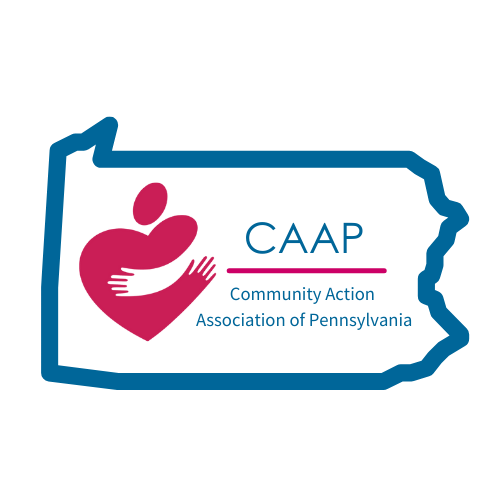Transit Insecurity Hits Hard for Those in Poverty
It’s 3 a.m.
Katie, a single mother of two young children, is awakened by her daughter’s cries of a high fever. Katie needs to get to the hospital quickly, but she lives in one of Pennsylvania’s rural counties and doesn’t have access to a car or a community transit system. By the time Katie gets to the hospital, her daughter has suffered a seizure and faces life-threatening health consequences.
Katie’s story is common among families in Pennsylvania and across the country.
About the problem
About 1 in 4 adults in the U.S. experience ‘transportation insecurity,’ the experience of being unable to move safely from place to place and in a timely manner, according to a recent report by the Washington Center for Equitable Growth.
More than half of U.S. adults experiencing levels of poverty are impacted by transportation insecurity, the report said. Along racial lines, that includes 19% of white adults, 29% of Hispanic adults, and 33% of black, non-Hispanic adults.
What’s Happening in PA
The problem is so pervasive in Pennsylvania that several agencies have emerged to advocate for those paralyzed by the lack of safe and affordable transit, including two Community Action Agencies (CAA).
“I think about transportation as the water we swim in,” said Sue Auman, executive director of Union-Snyder Community Action Agency (CAA), which covers Union and Snyder Counties in the Susquehanna Valley. “Many people don’t realize how transportation is way up there on the list of priorities for those with low income.”
The lack of funding for car repairs and car purchases creates significant funding needs for families, Auman said. Life can also grind to a halt for families with young children who don’t have access to a car or even reliable car seats, she continued. That often means families cannot get to food pantries, job training, and other service programs.
It’s a daily barrier, Auman said. But she added that one solution is gaining traction in the Susquehanna region.
Stop Hopper, a ride-share service like Uber and Lyft, offers $2 one-way trips in and around the region. The service has become a lifesaver for many families in rural communities who don’t have access to other transit options.
Auman hopes to see Stop Hopper expand across Pennsylvania. “I would love to see expansion of the Stop Hopper program because it fits the needs of many in rural communities,” she said.
A similar program is offering solutions to residents in Clinton and Lycoming Counties. Success Through Engagement and Partnership (STEP) now offers three new routes to support families with the Designated Stop Program. Each route can be taken for only $2.00 per trip with a reservation.
“STEP has been serving the residents of Clinton and Lycoming counties since 1966. As part of our mission of pursuing social and economic success, we seek to provide individuals and families with increased mobility throughout the region,” said Jim Plankenhorn, STEP President & CEO. “We are extremely excited to offer this new service and look forward to the success of our three new routes.”
Lack of transportation also creates poor health outcomes, said Wendy Melius, Executive Director of Center for Community Action, a CAA that serves Bedford, Fulton, Huntingdon, Juniata, and Mifflin Counties in Pennsylvania’s Allegheny Mountains and Valleys region.
Lack of access to transportation has emerged as a key social determinant of health (SDOH), which are non-medical factors contributing to poor health outcomes.
“If you can’t get to the doctor, you can’t meet the most basic health needs,” Melius said.
“Telehealth is not an option for many families in rural communities who don’t have access to broadband Internet services,” Melius said. Larger hospitals often require families to see specialists who are out of reach, she added.
Community Action Agencies like Union-Snyder and Center for Community Action partner with agencies such as federally qualified health clinics to help families with transportation.
Two statewide organizations – Philly Transit Riders Union and Pittsburghers for Public Transit, have also formed to improve transportation access in PA.
How CAAP is Helping
Community Action Association of Pennsylvania (CAAP) is partnering with organizations to help address the issue of transit insecurity and support Community Action Agencies striving to address transit issues.
The Alliance for a Just Society (AJS) and Transportation for America are two non-profit organizations providing training and information to support CAAP-member agencies in making a difference.
In partnership with CAAP, AJS is inviting interested Community Action Agencies in PA to join weekly Zoom calls and receive periodic emails on rural transit and other transportation issues impacting CAA in PA and across the country. A link to join the calls is listed in the resource section of this article.
“The lack of safe and timely public transit has, for a long time, been on the back burner of issues impacting folks, particularly those in poverty,” said Libero Della Piana, senior strategist with AJS. “As with most things, the less you invest in it, the worse it gets. We’re looking to increase investments in transit funding and access.”
AJS is working with the National Community Action Partnership (NCAP) to raise awareness of the issue and deliver additional support to CAAs nationwide who are working to help families.
Transportation For America (T4A) is also helping organizations identify and apply for transportation funding, as well as assisting communities in advocating for new policies and legislation to address transportation infrastructure.
“Covid shed light on the historic underinvestment of transportation across the country,” said Beth Osborne, Director of T4A. The problem is more acute in rural communities that not only lack viable transit systems but also don’t have access to rideshare programs that would otherwise help pick up some of the slack.
Transit Across SDOH
Transportation Insecurity impacts all the social determinants of health. Without reliable transportation, families can’t get to school, jobs, or their doctor, and many are stuck in unsafe community conditions or are cut off from society with no access to family or friends.
At a recent health policy forum on the social determinants of health in Washington, DC, Dr. Sandra Ford, Assistant to the President for Public Health and Science and a White House Domestic Policy Council member, declared transportation access a major barrier for families.
“Health Equity is advanced when state and federal agencies come together to address the social determinants of health,” she said. Transportation inequity is one of them.
For families like Katie’s, help cannot come fast enough.
This article was written by Winslow Mason Jr., Director of Racial Equity with CAAP.
Article Resources and Links
More about Transportation Insecurity from the Washington Center for Equity Growth: https://equitablegrowth.org/new-research-shows-that-1-in-4-adults-in-the-united-states-suffers-from-transportation-insecurity/
Philly Transit Riders Union: http://phillytru.org/
Pittsburghers for Public Transit: https://www.pittsburghforpublictransit.org/
Stop Hopper: https://www.rabbittransit.org/schedules/microtransit-stophopper/
AJS National Campaign for Transit Justice: https://www.allianceforajustsociety.org/campaigns/transit-justice/
To join weekly AJS transportation calls or receive periodic emails: https://forms.gle/XEQAwpHeWPXM7QPz8
Transporation 4 American link to financial and legislative resources: https://t4america.org/iija/

